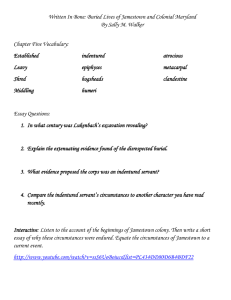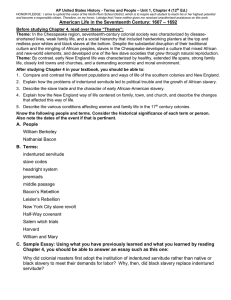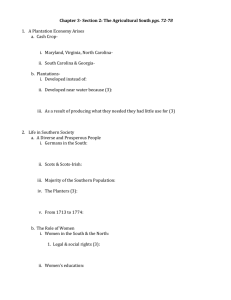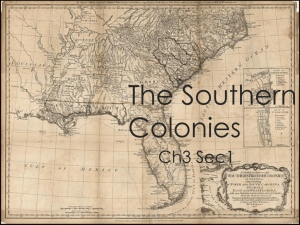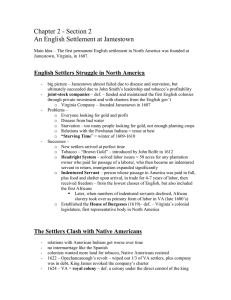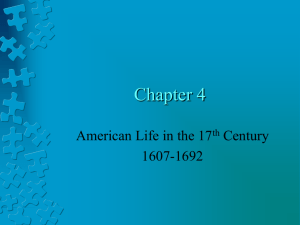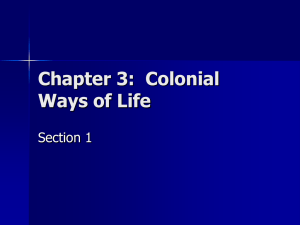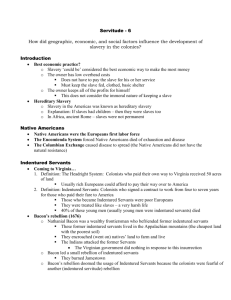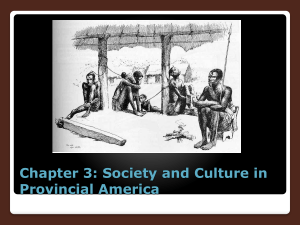Indentured Servitude and Bacon's Rebellion
advertisement
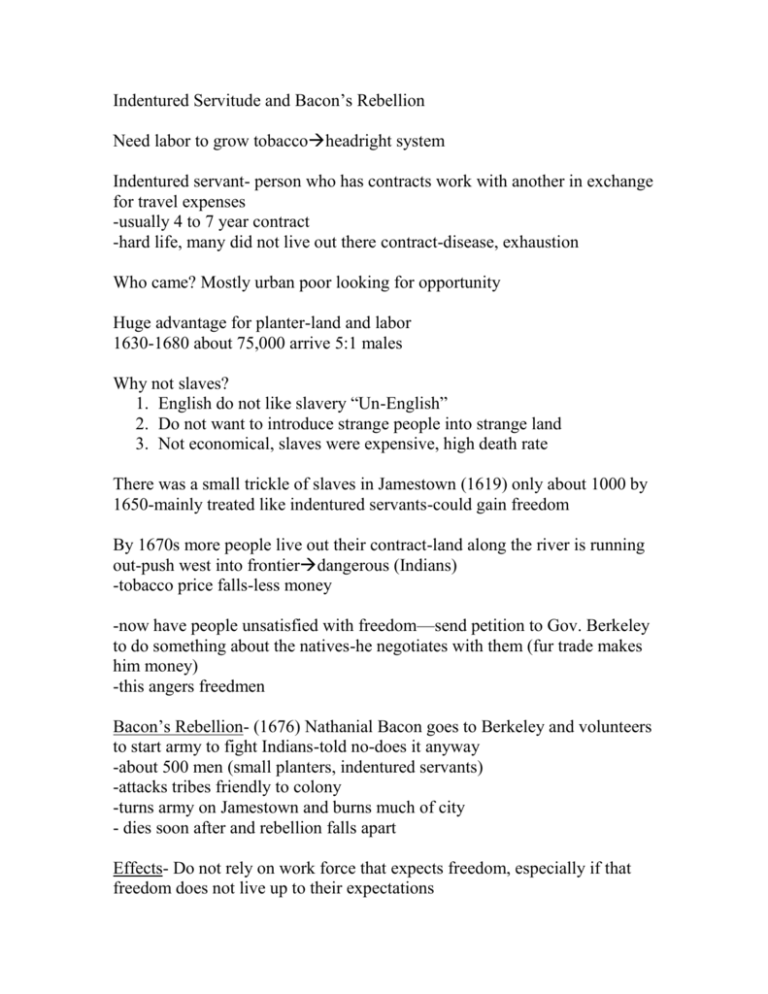
Indentured Servitude and Bacon’s Rebellion Need labor to grow tobaccoheadright system Indentured servant- person who has contracts work with another in exchange for travel expenses -usually 4 to 7 year contract -hard life, many did not live out there contract-disease, exhaustion Who came? Mostly urban poor looking for opportunity Huge advantage for planter-land and labor 1630-1680 about 75,000 arrive 5:1 males Why not slaves? 1. English do not like slavery “Un-English” 2. Do not want to introduce strange people into strange land 3. Not economical, slaves were expensive, high death rate There was a small trickle of slaves in Jamestown (1619) only about 1000 by 1650-mainly treated like indentured servants-could gain freedom By 1670s more people live out their contract-land along the river is running out-push west into frontierdangerous (Indians) -tobacco price falls-less money -now have people unsatisfied with freedom—send petition to Gov. Berkeley to do something about the natives-he negotiates with them (fur trade makes him money) -this angers freedmen Bacon’s Rebellion- (1676) Nathanial Bacon goes to Berkeley and volunteers to start army to fight Indians-told no-does it anyway -about 500 men (small planters, indentured servants) -attacks tribes friendly to colony -turns army on Jamestown and burns much of city - dies soon after and rebellion falls apart Effects- Do not rely on work force that expects freedom, especially if that freedom does not live up to their expectations As a result English turn to slavery based on race (Africans) 1. Fear of class warfare-creates equality among whites, always someone lower than you. 2. Flow of indentured servants started to dry up-better wages in England 3. Mortality rate dropped made slavery more economical
